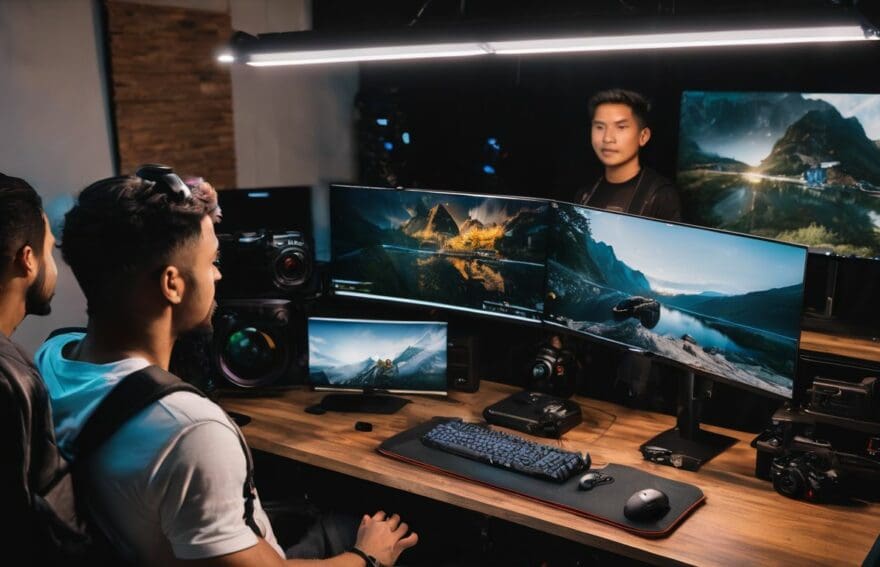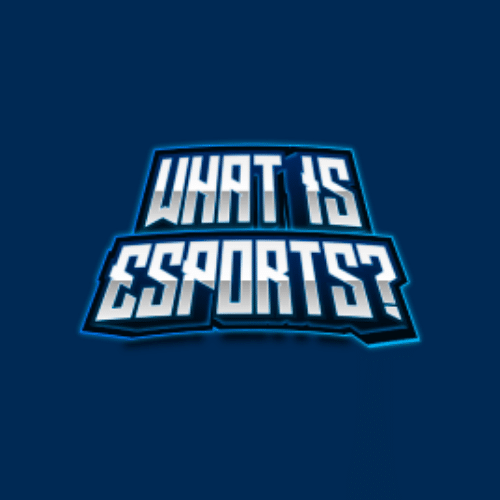Addressing Cheating in Esports: Integrity in the Digital Arena

Updated On: November 29, 2025 by 
Cheating in esports can feel like a pesky bug that’s completely soured the game – it’s just not cricket. We’ve all shared in the collective sigh of despair when foul play rears its head, threatening to tarnish the vibrant world of competitive gaming.
With ‘e-doping‘ looming over this dynamic industry like an unwelcome shadow, we’ve rolled up our sleeves to scrutinise ways of preserving honourable play. Our latest piece throws a spotlight on effective tactics for maintaining integrity within virtual battlegrounds and sheds light on some rather clever tech solutions on the horizon.
Join us as we champion fair play and watch how it elevates our digital competitions to stratospheric heights!
The Rise of Esports and Its Challenges
The growth of competitive gaming has led to an increase in integrity issues such as cheating and matchfixing, posing challenges for the esports industry. Maintaining fairness and ethical standards is crucial in upholding the integrity of digital competition.
Growth of competitive gaming
Competitive gaming has surged into the spotlight, transforming from a niche hobby to a global phenomenon. Esports tournaments now draw millions of viewers online and fill entire stadiums with passionate fans cheering for their favourite teams.
With substantial prize pools on the line, players have elevated their game to professional levels, dedicating hours to training just like traditional athletes.
Our love for video games has fuelled this rapid expansion, bringing together communities from all corners of the world. High stakes and fierce competition in the arena have not only led to incredible displays of skill but also significant challenges such as cheating and betting fraud that threaten the integrity of esports.
It’s our collective responsibility as an industry to promote fair play and maintain the spirited competition that makes esports so exhilarating.
Prevalence of cheating and integrity issues
As we delve into the fast-growing world of competitive gaming, it’s vital to acknowledge the prevalence of cheating and integrity issues in esports. E-doping and cheating not only compromise fair play but also undermine the trust and credibility that are so essential for the industry’s growth.
The Esports Integrity Commission (ESIC) diligently investigates allegations of cheating in esports, aiming to maintain a level playing field for all gamers. From match-fixing to betting fraud, instances of cheating can have a significant impact on the reputation and growth of esports and underscore the need for stringent regulation and integrity measures.
In combating this challenge, gamers play an instrumental role in shaping a culture of integrity within online games. As ethical implications persist, player education on maintaining the spirit of competition is crucial.
Aleo’s Role in Ensuring Fair Play
Aleo plays a crucial role in ensuring fair play in Esports by utilising blockchain technology and implementing zero-knowledge cryptography to create a secure and transparent environment for competitive gaming.
This helps to uphold integrity and build trust and credibility within the industry.
Use of blockchain technology
Blockchain technology is revolutionising the esports industry, providing an innovative solution to combat cheating and ensure fair play. Through blockchain, gaming platforms can securely record and verify every in-game action and transaction, creating a transparent and immutable ledger of all activities.
This not only enhances the integrity of competitions but also builds trust among players and stakeholders. With zero-knowledge cryptography implemented by Aleo, personal data remains confidential while still allowing for necessary validation processes.
Utilising this advanced technology strengthens the foundation of ethical gameplay and safeguards against fraudulent practices such as match-fixing and betting fraud.
Implementing blockchain technology in esports offers a robust framework for maintaining integrity in digital competitions. By leveraging its decentralised nature, gaming communities can establish a secure environment that upholds fairness and credibility across the industry.
Implementation of zero-knowledge cryptography
Transitioning from the use of blockchain technology, zero-knowledge cryptography further fortifies the integrity of competitive gaming. This innovative cryptographic method allows for secure data exchange without revealing any sensitive information.
By leveraging this technique, Aleo ensures that player identities and actions remain confidential while still validating the integrity of gameplay.
To protect against cheating and maintain fairness in esports, zero-knowledge cryptography enables verifiable computations without exposing individual gaming behaviours or compromising players’ privacy.
Overcoming Challenges and Potential Future Prospects
To ensure fair play and integrity in esports, the industry is focusing on creating a secure and transparent environment for gamers. By implementing advanced technologies and building trust and credibility, esports is aiming to overcome challenges and pave the way for future prospects in competitive gaming.
Creating a secure and transparent environment
To ensure a secure and transparent environment in esports, measures such as implementing blockchain technology and zero-knowledge cryptography are crucial. These technologies can help in securing gaming platforms, ensuring fair play, and maintaining the integrity of competitive gaming.
Additionally, collaborative efforts between law enforcement agencies, governing bodies, and industry stakeholders are essential to address match-fixing, betting fraud, and other forms of cheating effectively.
This concerted approach is vital for building trust among gamers and establishing a credible ecosystem that upholds ethical standards in esports.
In combating cheating in esports, it is imperative to educate players about the ethical implications of dishonest practices and instil a strong code of conduct within the community.
Building trust and credibility in the industry
Transitioning from creating a secure and transparent environment to building trust and credibility in the industry, it is crucial for gamers to be assured of fair play and ethical gaming practices.
Implementing robust anti-cheating tools, stringent penalty catalogs, and thorough policies not only fosters a secure competitive arena but also conveys a strong commitment to upholding integrity within the esports community.
The Global Esports Federation‘s involvement in promoting ethics and integrity further strengthens the industry’s credibility, assuring gamers that cheating scandals are being actively addressed.
These measures serve as vital pillars in establishing trust among gamers and enhancing the overall reputation of esports.
Gamers play an essential role in shaping a culture of integrity by supporting initiatives such as player education on ethics, rigorous regulation enforcement, and adherence to an esports code of conduct.
Collaborative Efforts for Esports Integrity
In order to maintain the integrity of esports, collaborative efforts with law enforcement and governing bodies are crucial. Ongoing investigations and sanctions against offenders are essential in upholding fair play within the industry.
Partnerships with law enforcement and governing bodies
- Law enforcement agencies work alongside esports organisations to investigate and prosecute individuals involved in cheating, match-fixing, or betting fraud in competitive gaming.
- Governing bodies provide oversight and regulation to maintain the integrity of esports competitions and ensure that ethical standards are upheld across the industry.
- These partnerships aim to create a secure environment for gamers by implementing stringent measures to deter cheating, promote fair competition, and protect the interests of players and fans alike.
- By working closely with law enforcement and governing bodies, the esports community sends a strong message that cheating will not be tolerated and that those who engage in illicit activities will face consequences.
- Through these collaborations, efforts are made to educate players about integrity issues, empower them to report suspicious behaviour, and foster a culture of honesty within the gaming community.
Ongoing investigations and sanctions against offenders
We investigate cheating allegations using advanced tools to gather evidence and ensure fairness in esports. Once confirmed, offenders face strict sanctions, including bans and fines, to maintain the integrity of competitive gaming. The process involves thorough analysis of data and player behaviour to identify intentional misconduct.
- Our team conducts thorough investigations into cheating allegations, analysing gameplay footage and online activity to gather substantial evidence.
- Once cheating is confirmed, we impose strict sanctions on offenders, including temporary or permanent bans from competitive gaming events and platforms.
- Offenders may also face financial penalties as a deterrent against engaging in unfair practices that compromise the integrity of esports.
- Through our ongoing efforts, we aim to deter potential cheaters by demonstrating our commitment to maintaining a level playing field in the digital arena.
- Investigations are supported by innovative technologies that enhance the detection of illicit activities, ensuring a fair gaming environment for all participants.
- Sanctions are enforced consistently and transparently to uphold the standards of fair play and promote a culture of integrity within the esports community.
Conclusion
In conclusion, the integrity of esports is crucial for its continued success and growth. By addressing cheating and implementing effective measures to ensure fair play, the industry can build trust and credibility among gamers and fans.
It’s essential to create a secure and transparent environment in which collaborative efforts with law enforcement, governing bodies, and technology can help combat cheating in esports effectively.
The importance of upholding integrity in the digital arena of Esports.
Upholding integrity in the digital world of esports is crucial for maintaining a fair and transparent playing field. The impact of cheating, such as e-doping and match-fixing, not only undermines the trust within the gaming community but also tarnishes the industry’s reputation.
Upholding integrity promotes a culture of honesty and ethical behavior, ensuring that gamers can compete with confidence while preserving the industry’s credibility.
The integration of rigorous anticorruption measures, alongside player education on integrity, plays a pivotal role in combating cheating in esports. These efforts are essential to protect the future prospects and sustained growth of competitive gaming against betting fraud, match-fixing scandals, and other forms of corruption.
FAQs
1. What is cheating in competitive gaming?
Cheating in competitive gaming includes any dishonest behavior by players that breaks the rules to gain an unfair advantage, such as match-fixing or using prohibited software.
2. Why is regulation important in esports?
Regulation in esports helps maintain a fair and level playing field for all competitors and prevents corruption, such as betting fraud and other forms of cheating.
3. How do esports tackle match fixing?
Esports address match-fixing by implementing anticorruption measures, strict codes of conduct, and penalties for those caught engaging in this dishonest practice.
4. Can players get away with betting fraud in gaming?
No, there are systems set up to detect betting fraud in gaming with serious consequences for those found guilty of manipulating outcomes for illegal profit.


